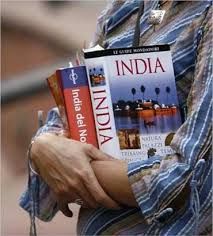 An assessment of the Planning Commission by the Independent Evaluation Office has found the panel exceeds the scope of its authority by acting as a ‘control commission’, particularly with regard to the allocation of funds to state governments.
An assessment of the Planning Commission by the Independent Evaluation Office has found the panel exceeds the scope of its authority by acting as a ‘control commission’, particularly with regard to the allocation of funds to state governments.
This is despite the fact that the commission was set up as a recommending body, through a Cabinet Resolution in 1950.
This, the assessment note said, raised concern, as the makers of the Constitution had created the Finance Commission for the same purpose.
The assessment of the Planning Commission, sent to the prime minister by the director-general of independent evaluation, recommended replacing the Plan panel with a new think tank, staffed by experts with domain knowledge.
This new entity should be tasked with giving recommendations and providing a road map of priorities to the central and state governments, to Parliament and to the private sector, the assessment said, adding though it should report to the prime minister, it should also have a defined relationship with Parliament.
“Since the Planning Commission has defied attempts to reform it and bring it in line with the needs of a modern economy and the trend of empowering states, it is proposed the commission be replaced,” the note read.
It added to apportion funds among ministries, the Department of Planning should be in the finance ministry.
“The Planning Commission’s role as an allocator of resources to states should be taken up by the Finance Commission and the allocation of resources among central ministries should be carried out by the finance ministry.”
The assessment recommended to highlight the new think tank’s role as a driver of new and dynamic thinking, it be called the Reform and Solutions Commission.
It said the entity should carry out three primary functions -- serve as a solutions exchange and repository for ideas that have been successful in different aspects of development in various states, districts and other countries; provide ideas for integrated systems reform; and identify new and emerging challenges and provide solutions to pre-empt those.
Opaqueness in the functioning of the Planning Commission was a matter of concern, the note said, citing the appointment of the commission’s deputy chairman by the prime minister, the lack of parliamentary oversight over the panel’s chief and the lack
Ajay Chhibber, director-general, Independent Evaluation, said, while releasing the assessment, “It is clear the Planning Commission, in its current form and function, is a hindrance, not a help to India’s development.
In my experience, it is not easy to reform such a large and ossified body; it will be better to replace it with a new body that is needed to assist states with ideas, provide long-term thinking and bring about reforms.”
Arun Maira, former Planning Commission member, agreed. He said former prime minister Manmohan Singh had specifically asked then Commission deputy chairman Montek Singh Ahluwalia and him about reforming the commission.
Maira said that time he had said the commission was overdoing the functioning of allocation of resources. “It might be useful 60 years back, but not now,” he said.
But, it does not mean the role of the Commission is finished. It should reform itself to system analysis and assessor of future changes.
It should have experts from various fields to inform private players and states about the changes that may come up in the future and persuade them to change accordingly, he said.
However, then Prime Minister reiterated the need of change for the planning commission in his last meeting with the commission which he talked about in 2010.
“We all know now, what needs to be done with the Planning Commission. The need now is to get it done,” he said.
Largely staffed by non-specialist bureaucrats, the Planning Commission lacked the expertise to act as a think tank, identify emerging issues and serve as an oversight body to review implementation of programmes and policies in states, the assessment said.
The Independent Evaluation Office was set up in February 2014 to independently assess the effectiveness of government programmes, institutions and policies, make its findings available to the government and place those in the public domain.
WHIFF OF REFORMATION
- The new think tank has been suggested to be called the Reform and Solutions Commission
- The recommended think tank should be staffed by experts with domain knowledge
- The new entity should be tasked with giving recommendations and providing a road map of priorities to the central and state governments, to Parliament and to the private sector
- Apart from reporting to the prime minister, the proposed body should also have a defined relationship with Parliament












 © 2025
© 2025